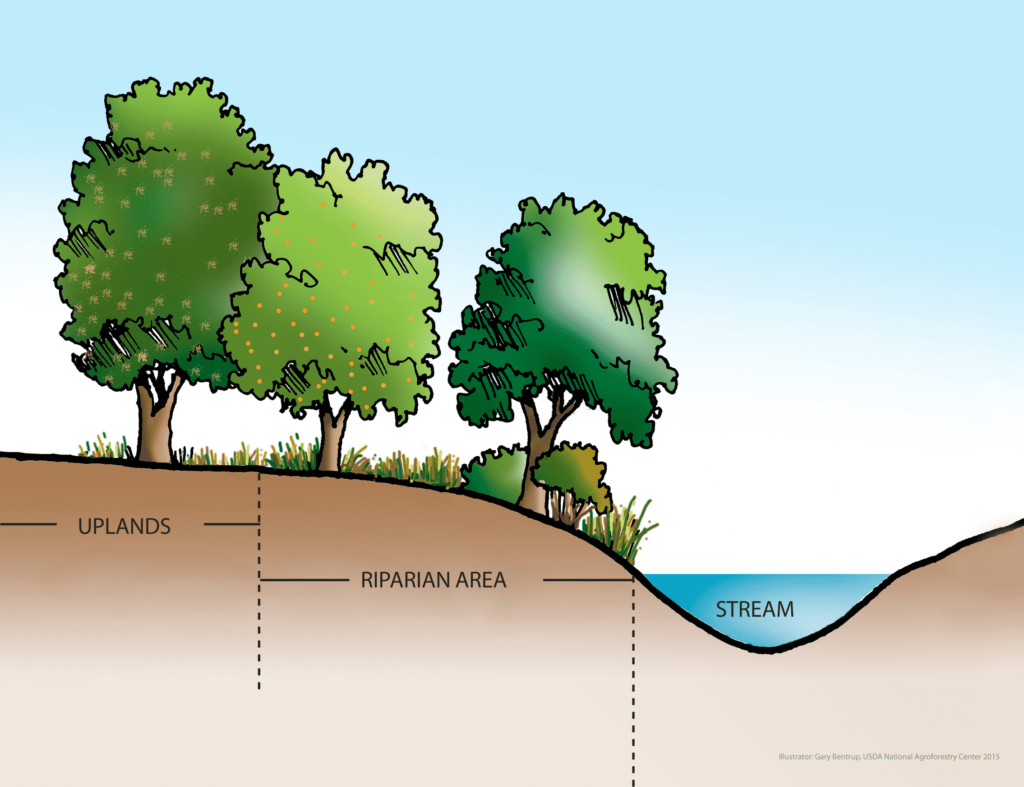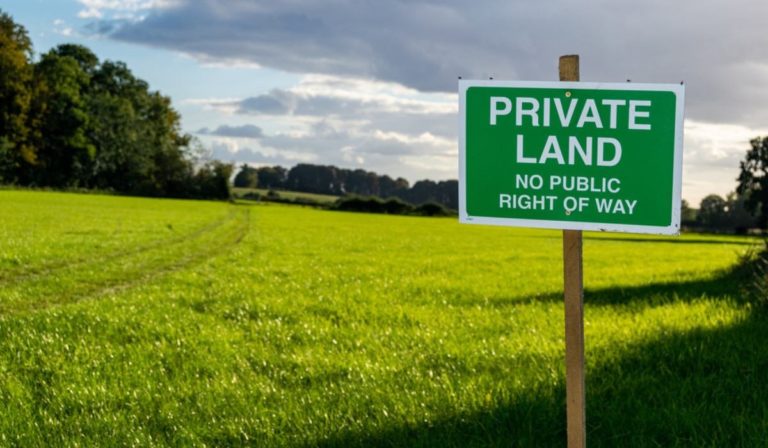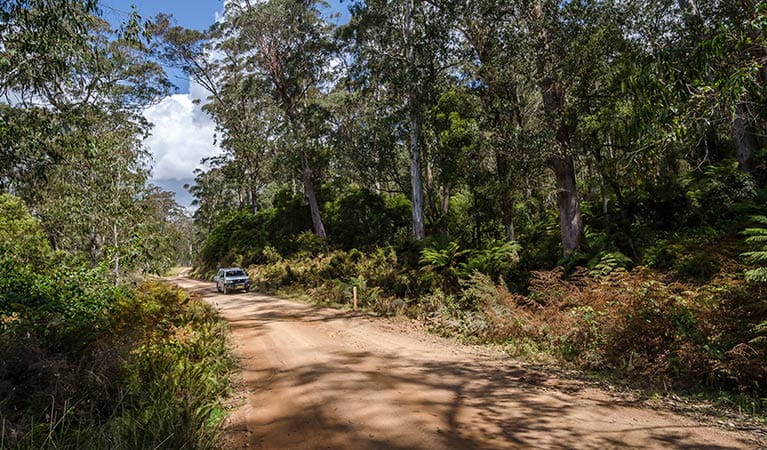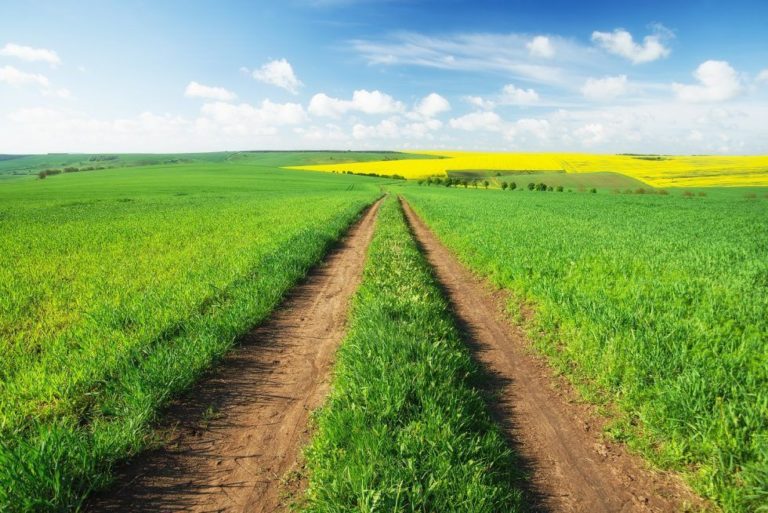As more individuals and families choose off-grid living, understanding one’s riparian rights is important.
These are the rights that accompany ownership or use of land near water sources like rivers, streams, and lakes.
Off-gridders must navigate complex legal frameworks to secure access to these vital resources for irrigation, drinking water, and waste management while respectfully coexisting with nature.
We will explore how to effectively assert your riparian rights while living off the grid, enabling you to thrive in harmony with the environment.
Understand the basics of riparian law
Before you start using your land, it’s important to have a basic understanding of riparian law and how it applies to your property. This includes understanding the legal definition of a riparian area and the rights and responsibilities that come with owning land near a river or stream.
A riparian area refers to the land along a river or stream, and understanding the legal definition of this term is essential for ensuring compliance with relevant laws and regulations.
Owning land near a waterbody brings with it specific rights and responsibilities, such as the duty to maintain the health of the waterway and the riparian area, as well as the right to access and use the water for various purposes.
Failure to comprehend these rights and responsibilities can result in legal disputes and fines, so it is essential to consult with a legal expert or a local authorities to gain a solid understanding of riparian law before initiating any activities on your property.
Check your local zoning laws
Zoning laws can affect how you use your land, and it’s important to know what is allowed on your property before you start building or making changes. Look for any zoning restrictions that may limit your ability to use your land near the river or stream.
Zoning laws can have a significant impact on how you can use your land, especially if your property is located near a river or stream.
These laws are designed to protect the environment and ensure that land uses are compatible with the surrounding area.
Before you start building or making changes to your property, it’s essential to research any zoning restrictions that may limit your ability to use your land.
For example, you may be prohibited from constructing buildings or making changes that could potentially harm the river or stream ecosystem.
You may be required to obtain special permits or approvals before engaging in certain activities, such as filling in wetlands or constructing structures near the water’s edge.
By understanding these zoning restrictions, you can avoid costly legal battles and ensure that your property is used in a responsible and sustainable manner.
So, before you start planning any projects near your river or stream, take the time to research the local zoning laws and regulations to avoid any potential issues.
Research your property’s historical use
Understanding how your property has been used in the past can give you clues about what is allowed today. If your property has been used for farming or grazing in the past, you may be able to continue these activities today.
Understanding how your property has been used in the past can give you clues about what is allowed today.
If your property has been used for farming or grazing in the past, you may be able to continue these activities today.
For instance, if your property has been used as a working farm or ranch for many years, it is likely that the local government will permit you to continue these activities, as long as you comply with any applicable zoning laws and regulations.
If your property has been used for farming or grazing in the past, it may be more likely that the local government will grant you a permit for new building projects, such as barns or fencing, that are related to these activities.
By understanding the historical use of your property, you can gain valuable insights into what is allowed today and make more informed decisions about how to use and develop your property.
Check for any easements or restrictions
Easements and restrictions can limit your ability to use your property. Look for any easements or restrictions that have been placed on your property, and make sure you understand what they allow and what they prohibit.
Before purchasing or owning a property, it is important to investigate any easements or restrictions that may be in place.
Easements give third parties the right to use your property for a specific purpose, such as access to a neighboring property or utility lines.
Restrictions, on the other hand, limit the use of your property in specific ways, such as prohibiting commercial activities or restricting the height of structures.
These limitations can significantly impact your ability to use and enjoy your property.
Therefore, it is essential to identify any easements and restrictions that may be relevant to your property and understand their specifics.
This includes reviewing property records, talking to neighbors, and consulting with a real estate attorney if necessary.
By being aware of any easements and restrictions, you can make informed decisions about your property and avoid any potential legal disputes or fines.
Consider the environmental impacts
Off-grid living can have a significant impact on the environment, so it’s important to consider the potential impacts of your activities on the river or stream. Make sure you are not harming the environment or disturbing the natural flow of the water.
As you embark on your off-grid living adventure, it’s essential to prioritize the health of the river or stream that you are using for your water source.
The actions you take can have a significant impact on the environment, so it’s important to tread carefully and mindfully.
This includes ensuring that your water intake system does not disrupt the natural flow of the water, and that you are not harming the aquatic ecosystems or wildlife that rely on the river or stream.
To mitigate any potential negative impacts, consider implementing measures such as sustainable water sourcing, habitat restoration, and pollution reduction.
By taking a responsible and thoughtful approach to your off-grid living, you can ensure a healthy and thriving ecosystem for generations to come.
Be aware of your neighbors
If you are living near other people who also have access to the river or stream, be aware of their rights and concerns. Make sure you are not infringing on their rights or causing them any harm.
As a responsible and considerate individual, it is important to recognize that your actions near the river or stream can have an impact on others who may also be accessing the same water source.
If you are living near other people who have access to the river or stream, it is essential to be aware of their rights and concerns, and to make sure that your actions do not infringe on their rights or cause them any harm.
This includes respecting any boundaries or restrictions that may be in place, and avoiding activities that could potentially pollute the water or disrupt the natural flow of the stream.
By being mindful of the impact of your actions on others, you can help to ensure a safe and enjoyable experience for everyone involved.
Document your use
To establish your riparian rights, it’s important to document your use of the land. Keep records of any activities you engage in, such as farming, grazing, or recreational activities. These records can be useful in case of a dispute or legal challenge.
To effectively establish and protect your riparian rights, it is important to document your use of the land.
This can involve keeping detailed records of any activities you engage in, such as farming, grazing, or recreational activities.
These records can serve as valuable evidence in case of a dispute or legal challenge.
For example, if you have been using the land for farming for several years, you should keep records of your crop yields, harvest dates, and any other relevant information that demonstrates your long-term, consistent use of the land.
Similarly, if you engage in recreational activities such as fishing or boating, you should keep records of your activities, including the dates and times you engage in these activities, the locations you visit, and any other relevant details.
By maintaining these records, you can provide clear evidence of your long-standing use of the land and your riparian rights.
These records can help to establish the value of your property, which can be important in legal disputes or challenges.
Therefore, it is essential to document your use of the land to establish and protect your riparian rights.
Seek legal advice
If you are unsure about your riparian rights or have any legal questions, it’s important to seek the advice of a qualified attorney. They can help you understand your rights and limitations, and ensure that you are not infringing on the rights of others.
If you are unsure about your riparian rights or have any legal questions, it’s important to seek the advice of a qualified attorney.
A well-versed legal professional can help you understand your rights and limitations, as well as ensure that you are not infringing on the rights of others.
An attorney can provide valuable guidance on how to navigate complex riparian legal issues, such as disputes over water use, property lines, and environmental regulations.
They can also help you prepare for potential legal conflicts and represent you in court if necessary.
Don’t risk your rights and interests by attempting to navigate these legal waters alone – seek the expert advice of a qualified attorney instead.
Want More? Dive Deeper Here!
Hey there! If you’re the type who loves going down the rabbit hole of information (like we do), you’re in the right spot. We’ve pulled together some cool reads and resources that dive a bit deeper into the stuff we chat about on our site. Whether you’re just killing time or super into the topic, these picks might just be what you’re looking for. Happy reading!






